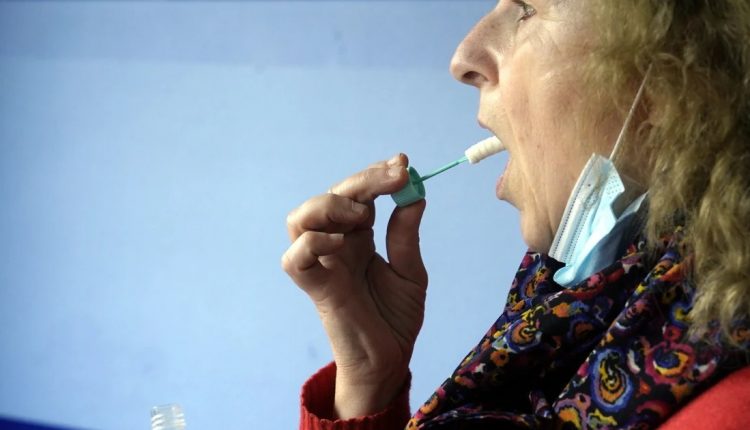
COVID-19: saliva as a possible predictive identikit of the severely ill person
Saliva and COVID-19: with the same symptoms, some people with SARS-CoV-2 require hospitalisation while others can be treated at home
What distinguishes the two groups and how to identify them quickly in order to guide doctors’ therapeutic choices is the subject of a Humanitas research, published in Gastro Hep Advances, which describes a new method based on the analysis of saliva and blood.
Coordinator of the study is Professor Maria Rescigno, head of the Laboratory of Mucosal Immunology and Microbiota of Humanitas and professor of General Pathology at Humanitas University, who with her team of researchers joined Dr. Antonio Voza, head of the Humanitas Emergency Department, and Dr. Elena Azzolini, head of the Humanitas Vaccine Centre.
The results of the study on Covid swabs and saliva
Faced with the difficulties of the first pandemic waves, when thousands of patients poured into the emergency room and there was still little knowledge about the course of the disease, the team of researchers used their expertise on the microbiota and mucous membranes to identify new markers of severity that would work early.
Professor Maria Rescigno and Dr Chiara Pozzi, a research immunologist at Humanitas, focused on the microbiota of saliva and the set of metabolites, i.e. products resulting from a chemical process linked to the digestion or ingestion of food.
“Through a retrospective study, we analysed the saliva and blood of hospitalised and home-treated patients to find out what distinguished the two groups, comparing the data with those collected from healthy and cured subjects,” explains Professor Rescigno.
“A machine learning approach was essential: our data scientists, led by Riccardo Levi, helped us to eliminate confounding parameters and the age factor, enabling us to isolate two metabolites, myo-inositol and 2-pyrrolidinic acetic acid.
These, together with a protein present in the blood (Chitinase 3-L1), have been shown to correlate with the severity of COVID-19, and therefore with the need or otherwise for hospitalisation’.
The combination of these 3 saliva and blood parameters describes the identikit of the severely ill patient and thus would be able to distinguish Covid patients based on the expectation of their clinical course.
“Subsequently, we saw that these two metabolites correlate with certain groups of bacteria in the salivary microbiota,” Professor Rescigno continues.
“Those who have altered metabolites also have altered bacteria.
The result is not surprising: the microbiota plays an important role in infection because it prepares the immune system and can have antimicrobial activities.”
And saliva, where part of the microbiota is located, is one of the places where the virus penetrates
“It is also important to note that the protein detected in the blood is involved in the regulation of the ACE2 receptor, the SARS-CoV-2 virus receptor.
This means that if the protein is already high to begin with, the person has more receptors and therefore could ‘let in’ more virus.”
Read Also:
Emergency Live Even More…Live: Download The New Free App Of Your Newspaper For IOS And Android
Swabs Chaos, What To Do And When To Do It: In Italy Infectious Diseases Experts Provide Clarity
COVID-19: Rapid Test, How It Works And Effectiveness
Diabetes: A Biochip Will Measure Glucose By Human Saliva


